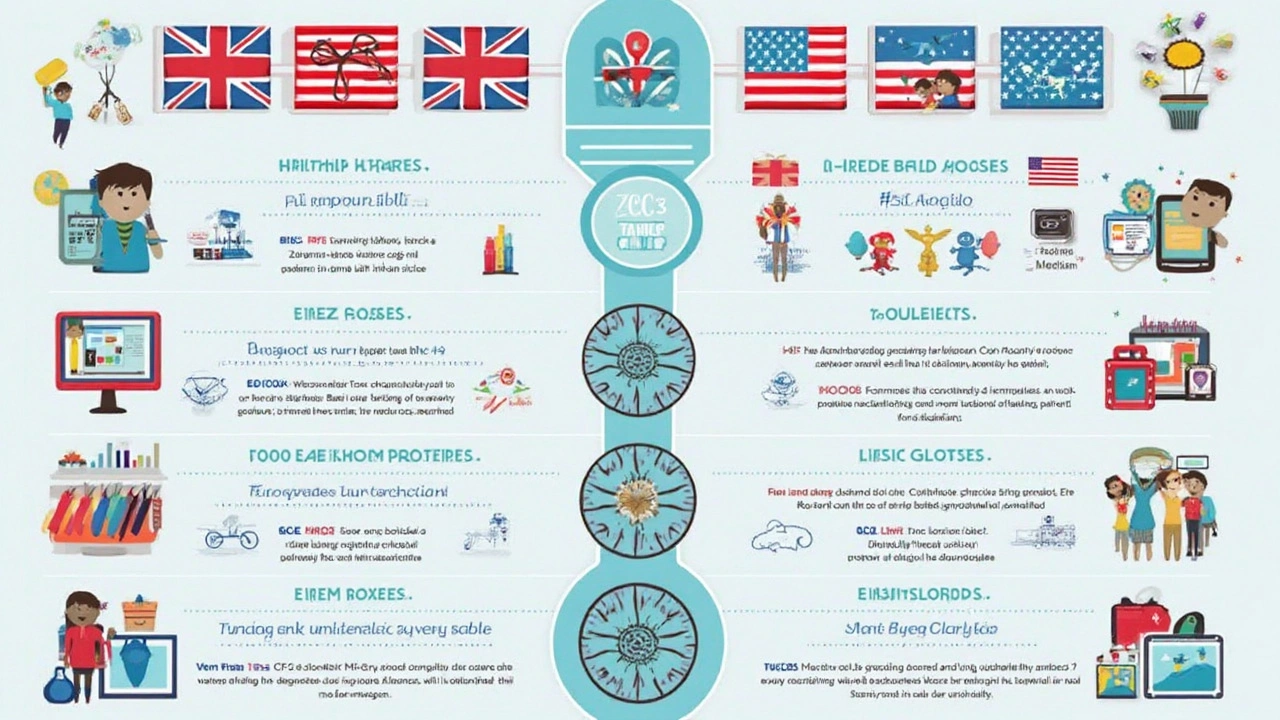British Education: What You Need to Know Right Now
If you’re trying to figure out how school works in the UK, you’ve probably hit a wall of confusing terms – GCSEs, A‑Levels, UCAS, and so on. Let’s break it down in plain English so you can see the whole picture without the jargon.
Key Stages: GCSEs and A‑Levels
GCSEs are the first big set of exams most students take at age 16. You’ll pick around 8–10 subjects, sit the papers, and get grades from 9 to 1. A grade 3 is the lowest passing mark, but many colleges look for 4 or higher in core subjects.
After GCSEs, students move onto A‑Levels (or other routes like BTECs). A‑Levels are deeper, usually three subjects studied over two years. Your grades – from A* to E – are what universities use to decide if you get a place. If you’re eyeing Oxford or Cambridge, focus on a strong grade profile and a solid personal statement.
Comparing to Other Systems: A‑Levels vs SATs and AP
International students often ask whether A‑Levels are harder than the US SAT or AP exams. The short answer: A‑Levels are more focused. You study three subjects in depth, while SATs test a broad range of skills and AP lets you pick individual college‑level courses. If you prefer specialization, A‑Levels are a better fit.
For American schools, AP credits can sometimes count toward UK university entry, but each university has its own policy. Harvard, for example, looks at AP scores separately from UK qualifications, so check the specific entry requirements.
Beyond exams, British education puts a lot of weight on extracurricular activities, work experience and personal statements. Those can tip the scales when grades are close.
We also cover practical topics like the fastest teacher training routes, how to start homeschooling, and the best adult learning theories that work in UK classrooms. All of these help you understand the full education ecosystem, not just the test scores.
Whether you’re a student planning your next steps, a parent navigating the school system, or a teacher looking for fresh strategies, this tag brings together the most useful articles. From choosing the right A‑Level subjects to getting scholarships for average students, you’ll find real‑world tips that cut through the confusion.
Ready to take action? Start by checking your GCSE results, then map out the A‑Level subjects that line up with your career goals. Use the UCAS calculator to see what universities will expect, and don’t forget to build a strong personal statement with concrete examples of your achievements.
Keep this guide handy as you move through each stage. British education can feel like a maze, but with the right info you’ll know exactly where to go next.






